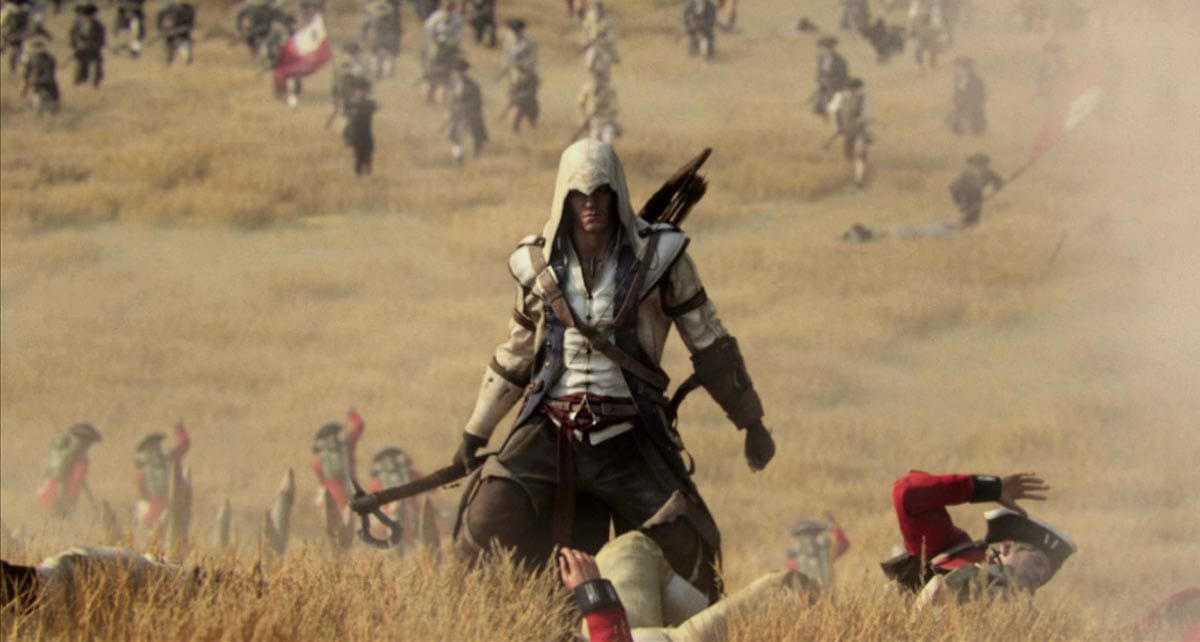
Reviews of the new Assassin’s Creed game are out, and they are mixed (we’ll have our take as soon as we get off of the ark. The goats and the zebras are trying to mate and we keep shouting at them, FERTILE offspring. Cabin fever? Cabin fever.) It’s still another blockbuster game this fall – after Resident Evil 6 and Dishonored and Warfighter – nagged by a sense of disappointment, a sense that is, in combination with bad sales numbers, feeding the perception that big, core, narrative games are a fading cultural phenomenon.
– – –
The irony of a game about a revolution possessed of such conservative instincts was not lost on game writers, and I don’t think it will be lost on the public. Chris Kohler’s fantastic piece about why Assassin’s Creed needs to end gets at, I think, the source of this dissatisfaction. We have been playing these series (and their inspirations, in the case of Dishonored) for years, if not decades. Gamers, even those of fairly conservative tastes, have been playing iterations of the same entertainments for too long. They, we, want new experiences.
Despite the creative, sometimes sublime indie games we highlight, Kill Screen has no dog in the fight; we just love good games, and this fall’s mediocre AAA run is as big a bummer to us as it is to the most passionate Cheeto-ripping big-console-loving fanboy.
I do have the sense, though, that Halo 4, the year’s last truly enormous release, could be a pivotal moment in the history of games in general. If the game is outstanding beyond a doubt, I think the talk about the decay of core gaming will quiet down, at least until next fall. But if it does not live up to the past games in the series, if it is merely an accomplished improvement on Halo 3, I think the game, and this season, could be remembered as the moment that core games definitively passed their crest of influence in American life. And maybe this season will be remembered as the time that a revolution in gaming truly began.




